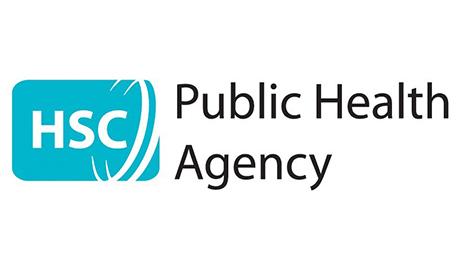Talking Really Helps Campaign
Mental HealthThe Public Health Agency (PHA) is highlighting the importance of having conversations about our true feelings in a campaign that shows people that ‘Talking really helps’. The campaign aims to encourage anyone with feelings of anxiety or distress, or who is in crisis, to start the conversation about their thoughts and feelings.
The ‘Talking really helps’ campaign shows people putting on a brave face when talking to others but then reveals their true feelings when they are on their own and that they are not fine or they are struggling to cope. The messages then show how through speaking to someone, they can start to feel better.
Fiona Teague, Mental Health and Emotional Wellbeing Lead at the PHA, said: “Suicide and self-harm is preventable, it is not inevitable, but sadly it affects people of all ages and walks of life. Through this campaign, we are encouraging anyone experiencing difficulty with their mental health and wellbeing to talk to someone.
“It might seem daunting but starting the conversation about our thoughts and feelings will really help and with the right support, things can get better. It is important to remember that help is available – don’t hide problems away.”
The campaign also promotes Lifeline, the free 24/7 crisis helpline and encourages anyone in distress or despair to call the helpline and speak to one of Lifeline’s qualified counsellors by calling Lifeline on 0808 808 8000.
People with hearing difficulties or speech impairment can contact Lifeline using textphone 18001 0808 808 8000 or the Relay UK App. British and Irish Sign Language users can use the SignVideo app. For callers whose first language is not English, Lifeline can access translators.
For more information on Lifeline visit www.LifelineHelpline.info
“The Lifeline service and its experienced crisis counsellors are invaluable to our communities,” Fiona continued.
“The trained counsellors at Lifeline support people experiencing thoughts of suicide or self-harm, those with high levels of anxiety and those needing support with feelings of low mood and depression. The service is available day and night and is there for people through whatever crisis they are experiencing, to help get them to a better and safer place.
“You can also call Lifeline on behalf of someone in distress who can’t make that first call for themselves or for advice. For example, Lifeline counsellors can help a friend or family member to support the person in distress.”
It is important for all of us to know the signs that someone is having difficulty coping. When someone is having difficulty coping, often a change in behaviour is what you will notice first.
Some things to look out for are:
- They may be more irritable than normal, with the smallest thing causing them to get annoyed with themselves or others around them.
- They may be spending more time alone and not want to go out and do the things they normally enjoy doing.
- They may complain of feeling tired and have disturbed sleep patterns.
- They may be skipping meals or eating more than normal.
- You may notice that they are misusing alcohol or drugs, or taking days off work, school or college.
- Remember, we are all different and not everyone will display all or any of these early warning signs.
If you see these signs or you are concerned that someone might be having thoughts of suicide, you should ask them directly if they are thinking about suicide or ending their own life. If they say yes, it is essential to get them support, Lifeline can help guide you and the person with thoughts of suicide.
For more information on the campaign, which runs throughout February and March, and to see the TV adverts and other campaign materials, visit www.pha.site/TalkingReallyHelps
















































































